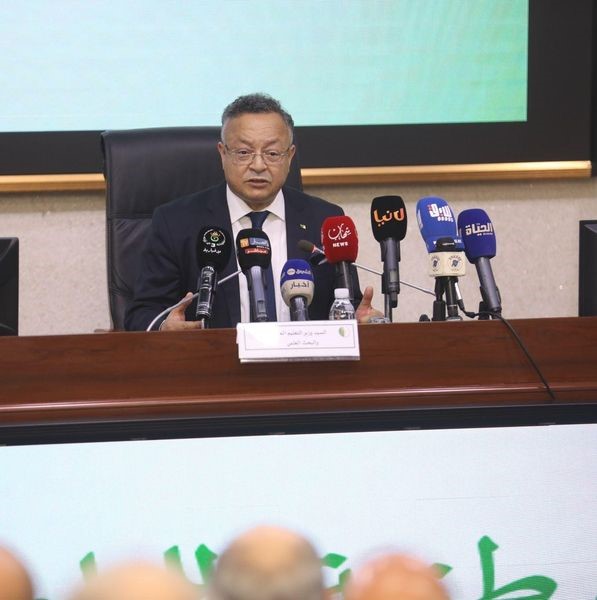The University at the forefront of the new AlgeriaŌĆÖs concerns
ministerial activities
The University at the forefront of the new AlgeriaŌĆÖs concerns

The president of the Republic, Mr. Abdelmadjid Tebboune, places the university at the forefront of the new AlgeriaŌĆÖs concerns as a driver of economic development in the country, said the minister of Higher Education and Scientific Research, Mr. Kamel Baddari.
ŌĆ£The President of the Republic, Mr. Abdelmadjid Tebboune, places the university at the forefront of the new AlgeriaŌĆÖs concernsŌĆØ, which has allowed the university to ŌĆ£keep pace with the stakes to be the engine of the national economy,ŌĆØ said the minister during his guest appearance on the Algerian television on Tuesday evening.
On this occasion, the minister revealed that digitalization has played an essential role in streamlining spending and improving university services, especially in catering and university transportation.
Regarding the strengthening of English language teaching, the minister stated that it has been adopted in several educational areas through various academic institutions, while striving to broaden the process in the upcoming phase, especially in technological specialities, the fields of the sciences of matter, life and nature sciences, and certain specialities in the fields of humanities and social sciences.
On the other hand, the minister indicated that the number of new baccalaureate holders who have accessed the platform has reached 396 thousand students; this is about 96%, while 386,000 students have completed the preliminary registrations, which is 95% of all new baccalaureate holders. He asserted that the operation went smoothly; particularly in the light of the digitization of all its stages, with a view to achieving the principle of democratization of higher education through total transparency.
Regarding training pathways, the minister has emphasized that 32 new pathways of training have been established on the choices of the teachers and the requirements of the economic and social environment in conformity with the ways of the new Algeria.
As for the university pole of science and technology, Sidi Abdellah, (Algiers), it has been strengthened by higher schools of artificial intelligence, cybersecurity, mathematics, Nanotechnology and autonomous systems, which will contribute to the quality of education and scientific research, as well as economic development.
In this context, several specialities have been created, such as a thematic network on automotive technology, which includes nine academic institutions enabling graduates to be directly employed in this field; as well as the accreditation of training in the textile industry at the University of Relizane.
ŌĆ£In line with the needs of the health care system, last yearŌĆÖs intake increased to 15,000 students from 9,000 in previous years,ŌĆØ said the minister, adding that ŌĆ£Technological sciences, especially those related to microtechnology, are also very much in demand.ŌĆØ
On this occasion, the minister reassured the students that ŌĆ£the structures and teaching staff are ready to welcome one million and 812 thousand students during the academic year 2025/2024ŌĆØ, stressing that ŌĆ£the State has invested in this area to fully strengthen the sector, mainly after the recruitment of 10 thousand new university teachers over the past year to bring the university from one teacher for every 25 students to one teacher for every 22 studentsŌĆØ.





